Mining and March of a Masculine Footprint Over the Tribal People of Chhattisgarh
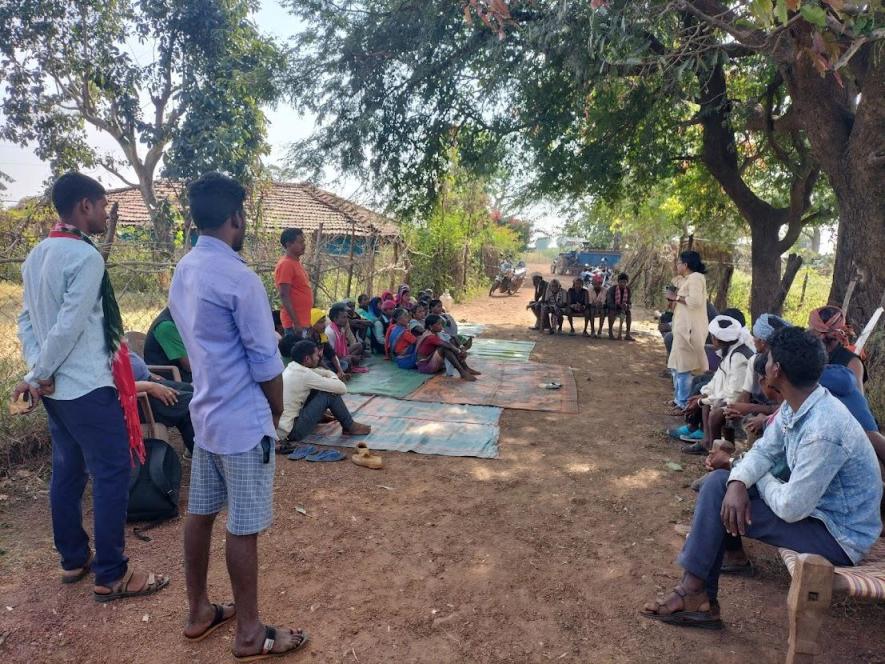
A Group of Baiga men and women gathered for a CFRs workshop at Bodai Village near the BALCO Mining areas. Photo: Bobby Luthra Sinha.
Social Costs of Mining on the Lifeworld of the Adivasis of Chhattisgarh
In November 2021, a workshop on Community Forest Rights (CFRs) was held in the Bodai village located in the Bodla Tehsil of Kawardha district in the central Indian state of Chhattisgarh. A group of Baiga men and women from different villages had gathered in the Bodai Village to attend this workshop conducted by our team from the Adiwasi Jan Van Adhikar Manch(AJVAM-Chhattisgarh) in collaboration with activists from Jan Chetna.
The Baigas, who fall under the category of Particularly Vulnerable Tribal Groups or PVTGs under Indian law, live in remote but resource-rich areas of Chhattisgarh. Baiga peoples’ abodes and habitats, just as those of many other tribal and forest-dwelling communities, form an allure for corporates and industries involved in mineral and metal extraction. Our fieldwork among the Baigas and Gonds of Chhatisgarh indicates mining portends not only an environmental footprint over the tribal homelands and natural resources such as land, water, forests and biodiversity, but also embodies an insidious masculine threat to the local Adivasi societies.
The tribal women in Bodai informed us of their increasing physical insecurities owing to the bauxite mining in their vicinity undertaken by BALCO, a Vedanta Groups company. T. Bai Baigin and B. Bai Baigin apprised us about rising incidents wherein some migrant labour from Madhya Pradesh and Bihar employed/outsourced by BALCO and truckers allegedly made advances and pursued and lured young tribal women away from their villages. In the face of such incidents, mining, we argue, endangers tribal health, nutrition, and water sources and becomes a cause of immense social stress and strain in the tribal society.
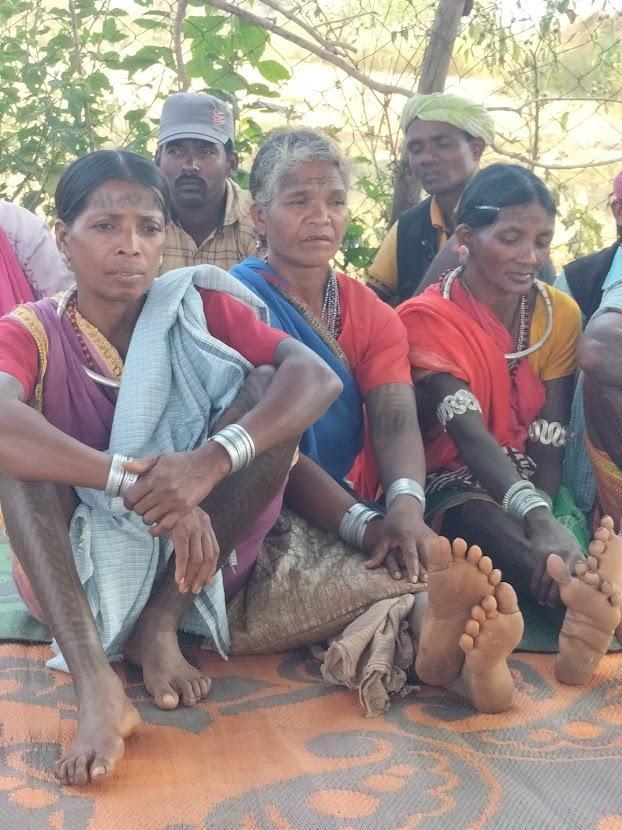
Mining as a Masculine Overburden on Tribal Societies of Chhattisgarh. Photo: Bobby Luthra Sinha. Bodai Village, Chhattisgarh
Tribal women, like men, are accustomed to going to the forest to collect seasonal and cyclical Minor Forest Produce (MFP). The tribal people collect various MFPs to satisfy livelihood/foraging related needs, including food, fodder and medicine. Youth, including young girls, partake in these family activities and remain mobile. Visiting the forest, individually or in groups, customarily tribal women and girls venture into the woods as often as they need be. Labourers and other outsourced workers from the BALCO mining industry have quickly figured out these MFP collection rituals associated with the forest.
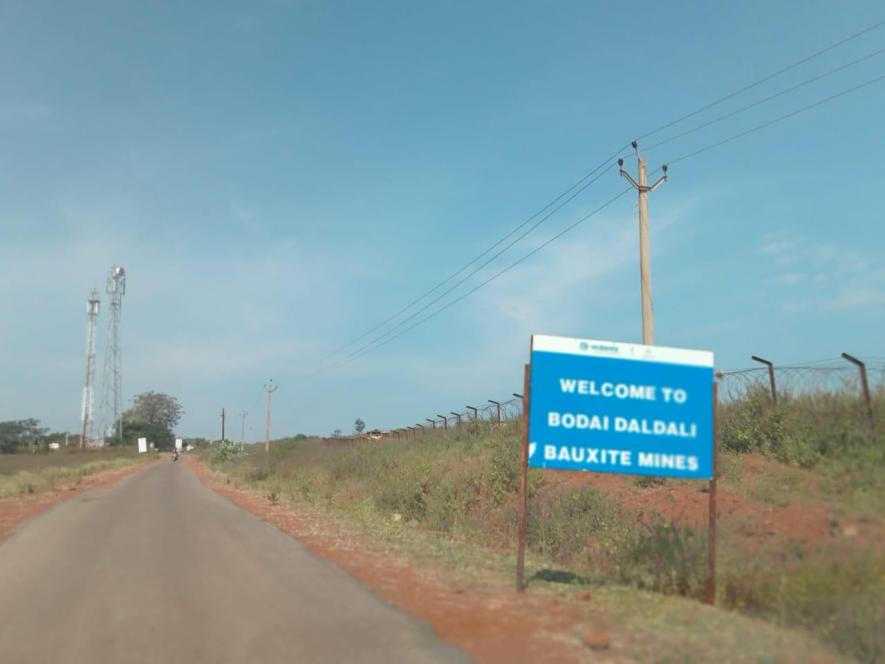
En route to the Bodai Village near the BALCO Vedanta- Daldali Bauxite Mines, Chhattisgarh. Photo: Savita Rath
Forests, unfortunately, become the site where exploitative designs of these workers are enacted on young gullible tribal women. Impacted by such involvements, some girls are forced to run away from home and may return either badly abused or hurt. Others may be abandoned while pregnant or as single mothers after years of suffering. Yet, some never return and are not reported missing either.
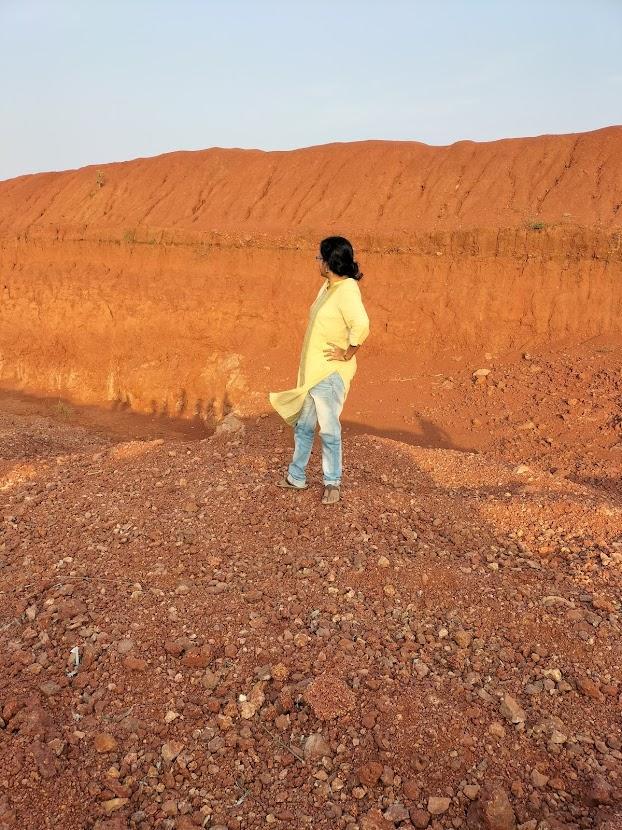
An activist looks on at the Bauxite Overburdens which have damaged the terrains of the Baiga habitats in Bodai, Chhattisgarh. Photo: Bobby Luthra Sinha.
Anima, an activist from AJVAM, observes, “Quite a few tribal women who suddenly ‘leave’ the villages remain ‘disappeared’, and the uneasy assumption, in the long run in many a case, is that these women have gone missing. When girls go missing by will or by choice, it causes deep anguish and hurts the community’s self-esteem, especially from the lens of a patriarchal imagination. Nonetheless, it also provokes double–trouble for the family of the ‘runaway’ women, so to say.
Facing social backlash, the affected families are considered at fault themselves and are penalised. They must cough up some statutory amounts in accordance with tribal customs, which also mandate them to apologise to the village by arranging a meal for all. The flip side is that if and when these procedures are followed, the missing girls, unbeknownst to them, are already forgiven. However, no matter how the community response is experienced, analysed or adjudged, the fact remains that the ‘social overburdens’ of mining weigh heavily on the soul of the community.
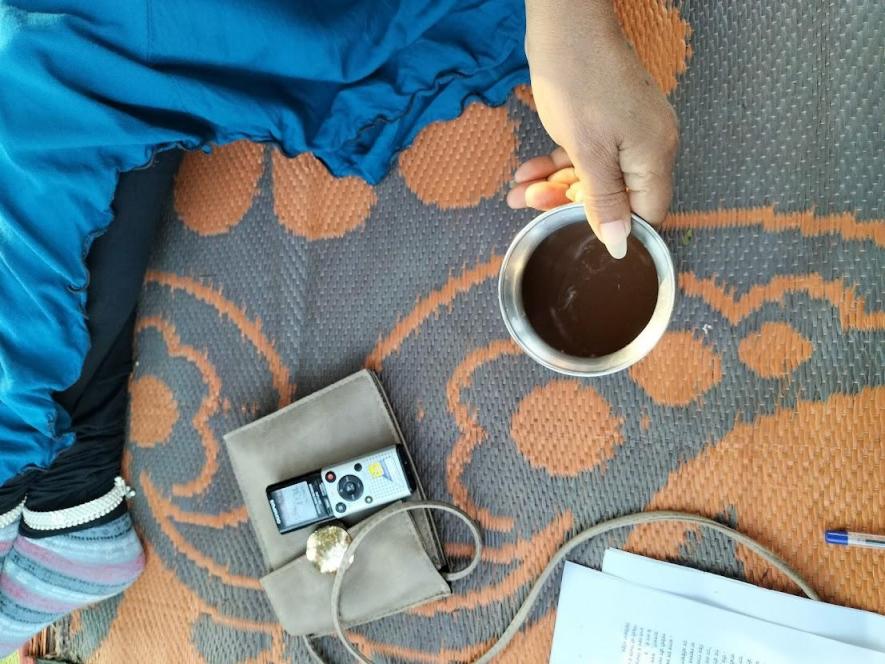
AJVAM activist showing us the heavily contaminated, red-coloured water from the village hand pump. Photo: Bobby Luthra Sinha. Bodai Village, Chhattisgarh
Owing to the trepidations of the tribal society, which are akin to and reminiscent of the conceptions on social 'prestige' in the patriarchal set-ups of the rest of India, crime against tribal women remains underreported. Mamta Kujur, a Chhattisgarh-based leader of the Adivasi Mahila Mahasangh (AMM), analyses, "In many such cases, the tribal women are unaware of their own constitutional and fundamental rights."
Not only does this make the women from the already marginalised PVTGs (such as the Baigas) more susceptible and in danger, but it also exacerbates the position of the tribal men.
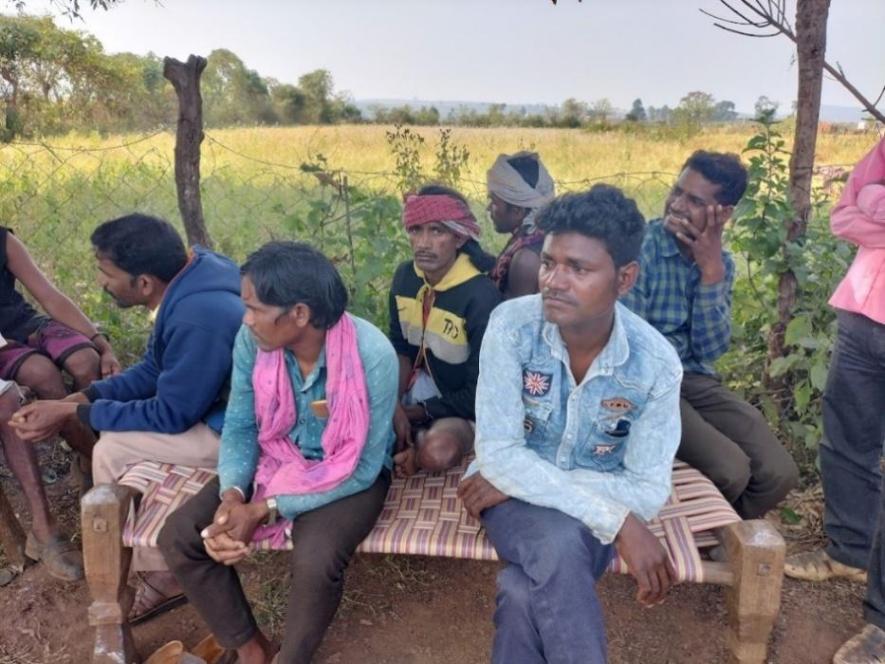
Young Baiga Men- A Contemplative, Powerful Silence. Photo: Bobby Luthra Sinha, Bodai.
The Baigins or the Baiga women inform us that ‘their men feel threatened as the miners use muscle power to shut them up. It was not unusual to hear of threats, scuffles and contentious interactions perpetrated by the industrial outsiders upon the Baiga men. Fearing for their lives, the Baiga men have receded into a pensive quietness. Nonetheless, the Baiga men told us that it was not an easy journey to see the miners take away so much from their life and lifeworld.
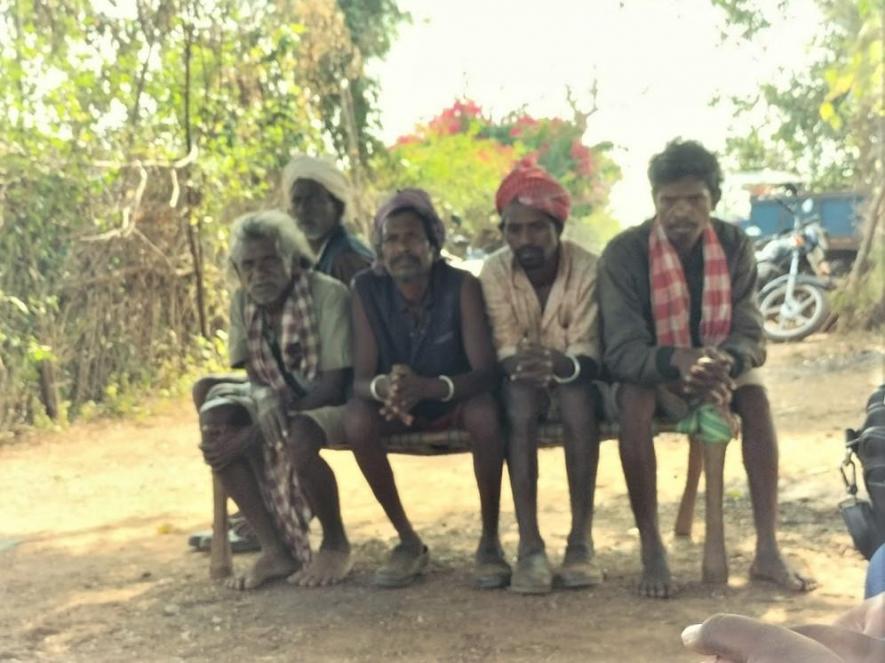
Older Baiga men crave protection of family safety and dignity. Photo: Bobby Luthra Sinha. Bodai.
The Social Overburdens of Mining: Whose Onus is it?
While the environmental impacts of mining are a contentious issue worldwide, the question is about how one mitigates the lesser-known but equally pressing social footprints of mining that tribal women and men bear in different contexts.
Jan Chetna activist Savita Rath points out, "Crimes against Baiga women in the Bodla regions impacted by mining may be reflective of a broader social reality and tally with similar incidents in the tribal villages of Raigarh near coal mining areas."
"There is a dearth of leadership amongst the tribal women, making their situation more vulnerable. If only the women can be empowered and motivated to know their rights, they would be safer," Kujur says.
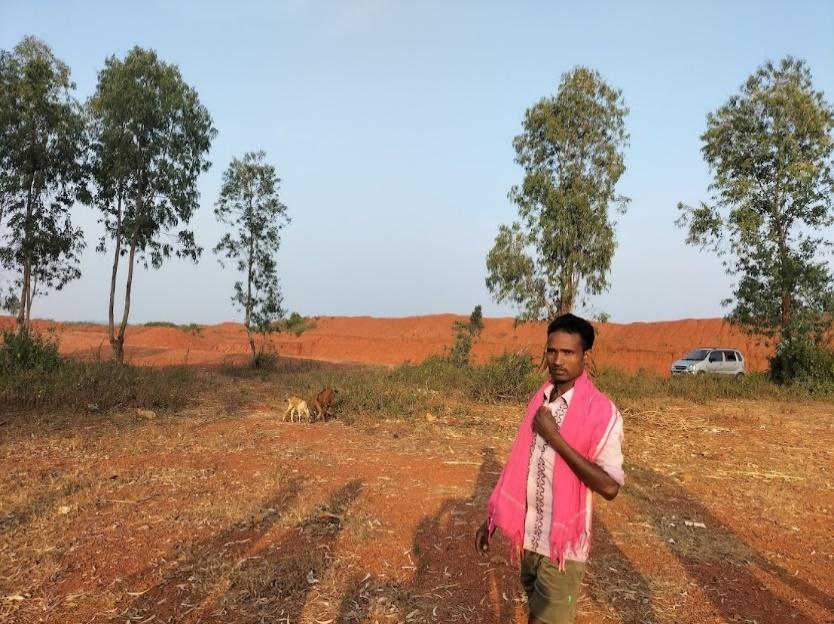
Tribals not happy about the choice of species, such as the water-thirsty, fast-growing Eucalyptus, being imposed on their habitats. Photo: Bobby Luthra Sinha. Bodai.
Bodla Tehsil, where the BALCO-Vedanta Bauxite Mines are located, qualifies for Panchayat Extension in Scheduled Areas (PESA). If PESA is implemented viably here along with the long-promised Habitat Rights for the PVTGs under the Forest Rights Act (FRA) 2006, the tribal women and communities would not be as disempowered as they feel now in the face of the masculine march of mining over their homelands.
In our view, the state as well as the non-state actors, including representatives of the civil society, can step in and take firm steps to handhold the tribal women and develop leadership skills in the following ways:
-
By making the women from PVTGS and other forest-dwelling communities aware of their legal and constitutional rights and human rights.
-
By safeguarding and implementing Community Forest Rights (CFRs) and Habitat Rights through gender-sensitive approaches.
-
By conducting training workshops to prepare the tribal society for handling unwarranted dangers and sexual crimes that contact with mining industries make them susceptible to.
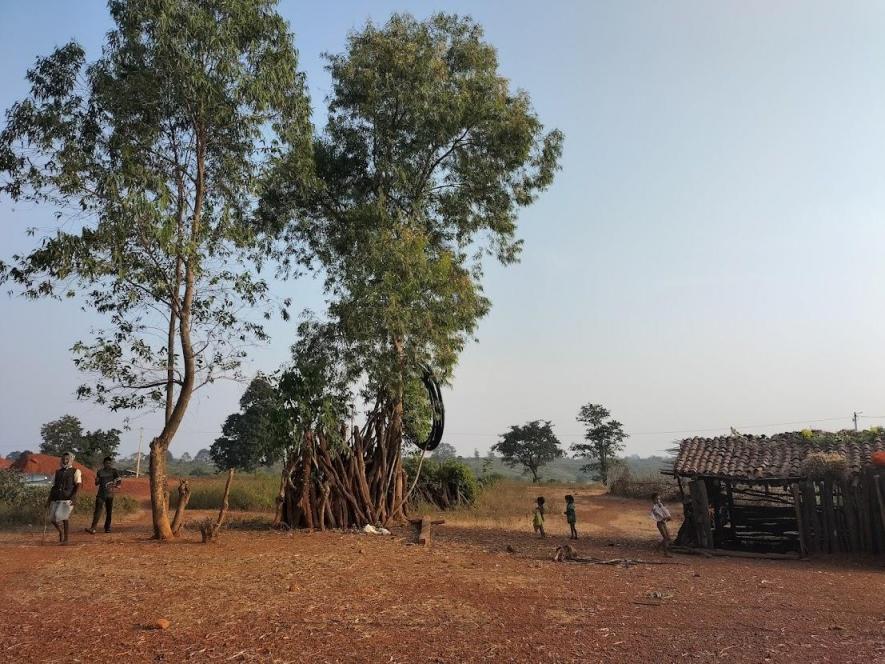
The Overpowering Eucalyptus: Given that it depletes the already burdened essential natural resource of water, and forces the tribal women to go water-fetching from far away resources exposes them to additional risks, the tribal peoples wonder why such a species is planted there? Photo: Bobby Luthra Sinha, Bodai
Tribal Women Say NO to Social Suffering!
Chhattisgarh can provide some path-breaking answers to ease the patriarchal distress that tribal and forest-dwelling societies incur while remaining silently pensive on the issue of mining-related traumas on their social fabric. If appropriate policies, protection and leadership strategies are put into place, exploitation, oppression and abuse as a fallout of mining in the tribal zones can stop to restore self-dignity, independence and normalcy to tribal women’s lives and families. Having witnessed traumas and tragedies borne by their younger generations, the elderly tribal women in Chhattisgarh believe that such a climate of social suffering need not be repeated or become the permanent fate of their young girls.
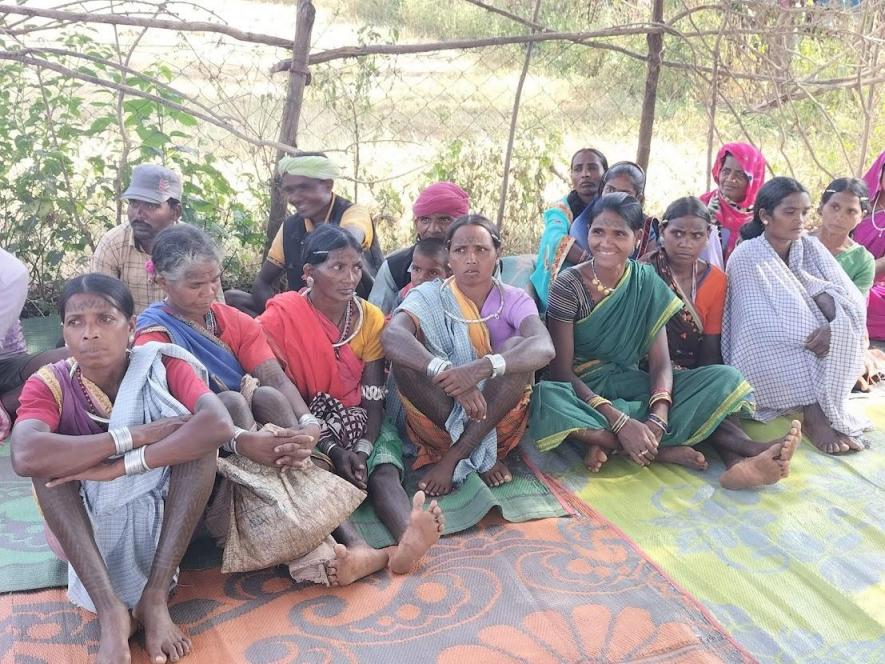
The Baigins (Baiga Women) portray a leadership potential. Photo: Bobby Luthra Sinha.
Dr Bobby Luthra Sinha is the Co-chair of the Migration Commission at the International Union of Anthropological and Ethnographic Sciences (IUAES).
Indu Netam is the convenor of Adiwasi Jan Van Adhikar Manch(AJVAM)- Chhattisgarh.
Get the latest reports & analysis with people's perspective on Protests, movements & deep analytical videos, discussions of the current affairs in your Telegram app. Subscribe to NewsClick's Telegram channel & get Real-Time updates on stories, as they get published on our website.














